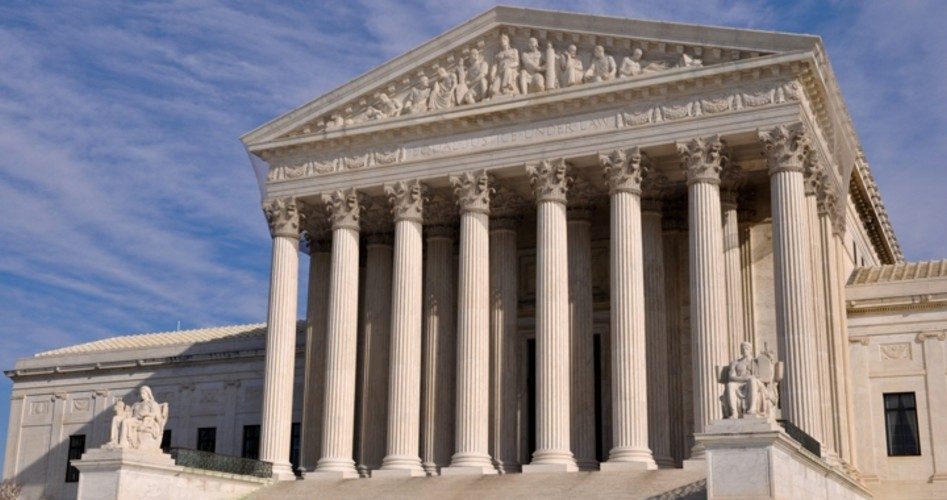
Pro-life advocates are celebrating a major victory after the U.S. Supreme Court rejected a challenge to a 2017 Kentucky law that requires doctors to perform ultrasounds and play the sound of the baby’s heartbeat to women who are planning to have abortions.
Challengers claimed the law violated the First Amendment rights of doctors and compelled women to look at images against their will.
In defense of the law, Kentucky’s attorneys argued the law was “simple and straightforward” and an important part of the “informed-consent process,” CNN reports. They said the law “does nothing more than require that women who are considering an abortion be provided with information that is truthful, non-misleading and relevant to their decision of whether to have an abortion.”
The 6th U.S. Circuit Court of Appeals upheld the law, but put it on hold pending the Supreme Court appeal.
“As a First Amendment matter, there is nothing suspect with a State’s requiring a doctor, before performing an abortion, to make truthful, non-misleading factual disclosures, relevant to informed consent, even if those disclosures relate to unborn life and have the effect of persuading the patient not to have an abortion, the 6th Circuit Court determined.
The high court rejected the case without providing comment.
Daily Wire editor-at-large Josh Hammer — a former federal law clerk on the U.S. Court of Appeals for the Fifth Circuit — contends the absence of recorded dissents is significant.
“The fact that there were no recorded dissents from any of the justices is notable,” said Hammer. “That ought to help demonstrate the common-sense, straightforward nature of Kentucky’s law.”
Steve Vladeck, CNN’s Supreme Court analyst and professor at the University of Texas School of Law, also defended the Supreme Court’s decision, asserting the Kentucky law “doesn’t implicate the same fundamental questions about the continuing scope of the right to choose that the justices identified in Roe as other cases already on the court’s docket this term and coming down the pipeline.”
The high court is already preparing to consider a Louisiana law next spring requiring doctors to obtain admitting privileges from a nearby hospital. Though the justices struck down a similar Texas law in 2016, the Louisiana law is substantively different in that it does not include the ambulatory surgical center requirement for abortion facilities. Likewise, the difference in geography and demographics between Texas and Louisiana prompted the appellate court to find that the law’s benefits to women outweigh any burdens the law may create, Pro Life Louisiana explains.
Pro-lifers are hopeful the Louisiana case, June Medical Services LLC v. Gee, could be the catalyst to overturn Roe v. Wade. Life Site News writes,
The case is likely to at the very least impact the [Whole Woman’s Health v. Hellerstedt] precedent, which has been used to invalidate a broad range of modest abortion regulations as “undue burdens” on women. It’s an open question whether a majority would take the opportunity to make a broader determination as to the underlying legitimacy of Roe v. Wade or Planned Parenthood v. Casey.
The overturning of Roe v. Wade, which imposed abortion on demand across the U.S. in 1973, would mean states could decide their own abortion laws.
Naturally, pro-abortion activists are infuriated by the Supreme Court’s rejection of the Kentucky law challenge.
“By refusing to review the 6th Circuit’s ruling, the Supreme Court has rubber-stamped extreme political interference in the doctor-patient relationship,” asserts Alexa Kolbi-Molinas, senior staff attorney at the ACLU Reproductive Freedom Project. “This law is not only unconstitutional, but as leading medical experts and ethicists explained, deeply unethical.”
Pro-abortion activists have made efforts to dehumanize the unborn, even removing language from abortion laws that are in any way indicative of the fact that the fetus referenced in the laws is an unborn human baby.
The Massachusetts Remove Obstacles and Expand Abortion Access Act (ROE Act), for example, attempts to spin what an abortion actually is by removing the words “unborn child” and “mother” from the legal definitions of pregnancy and abortion. The National Catholic Register’s Michael Forrest provides the comparison to current law versus that proposed in the ROE Act:
Current wording of Massachusetts General Law 112, section 12K:
Abortion: the knowing destruction of the life of an unborn child or the intentional expulsion or removal of an unborn child from the womb other than for the principal purpose of producing a live birth or removing a dead fetus.
Pregnancy: the condition of a mother carrying an unborn child.
Unborn child: the individual human life in existence and developing from implantation of the embryo in the uterus until birth.
Replacement wording of ROE Act:
Abortion: any medical treatment intended to induce the termination of a clinically diagnosable pregnancy except for the purpose of producing a live birth. The term abortion does not include miscarriage management.
Pregnancy: means the presence of an implanted human embryo or fetus within a person’s uterus.
The New York Times, in its attempt to disparage the Louisiana heartbeat law passed earlier this year, described the legislation as a “so-called fetal heartbeat bill,” and referred to a baby’s heartbeat as “embryonic pulsing.” Other news outlets, such as the Daily Beast, began to follow suit.
Anything to pretend terminating a pregnancy is not ending the life of an unborn child.
Raven Clabough acquired her bachelor’s and master’s degrees in English at the University of Albany in upstate New York. She currently lives in Pennsylvania and has been a writer for The New American since January 2010.




